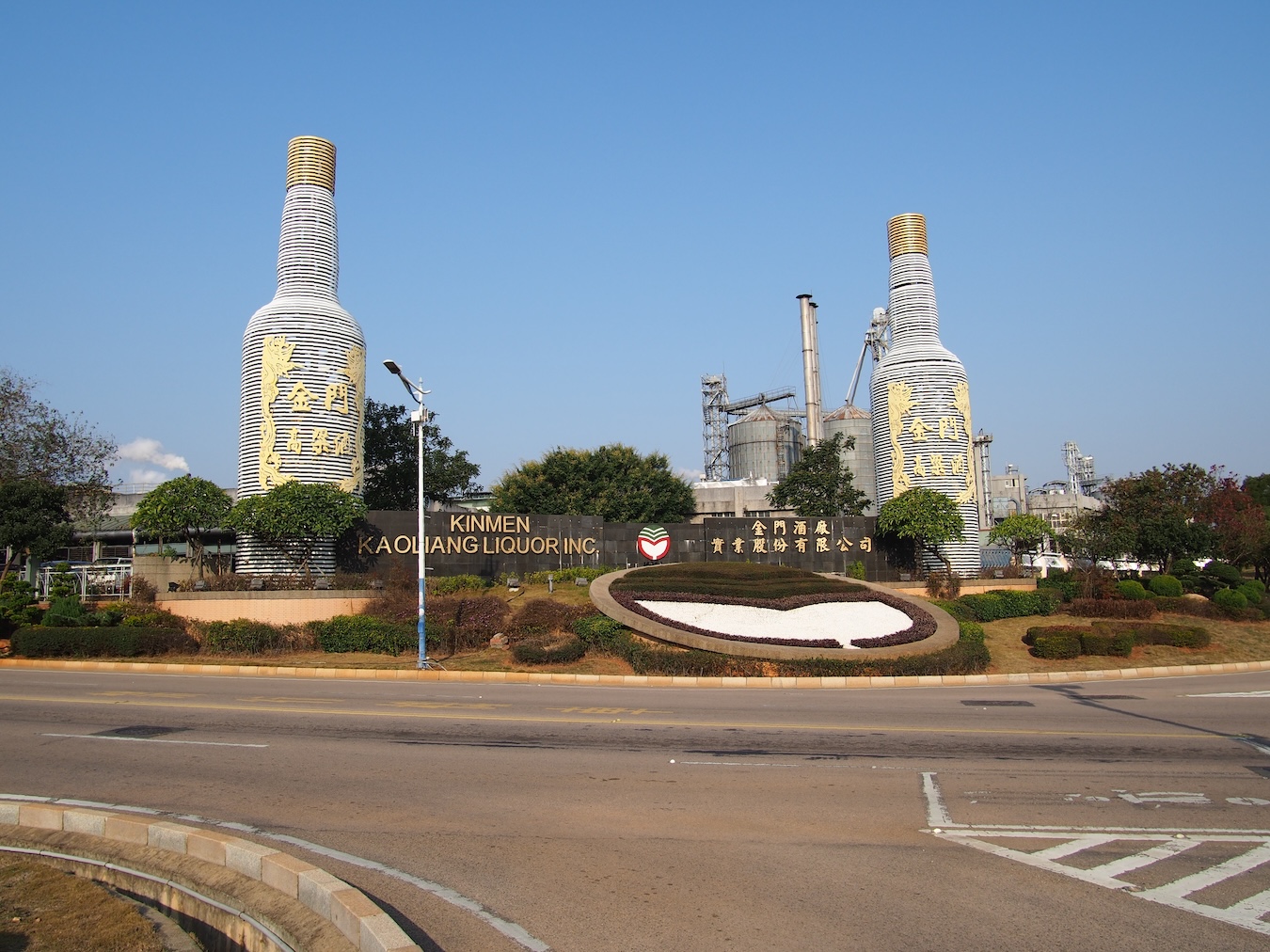by Brian Hioe
語言:
English
Photo Credit: /WikiCommons/CC BY-SA 4.0
FORMER KINMEN COUNTY magistrate Lee Wo-shih faces 90 months in prison after a May 29th sentence handed down by the courts. Lee was Kinmen county magistrate between 2010 and 2014, as a member of the KMT. Lee was previously a New Party member until 2007.
Lee’s sentence is on the basis of accepting bribes from Firich Enterprises Company head Hsu Ming-che. Hsu handed one million NT in a bag to Lee’s wife, Su Feng-ying, during a dinner while Lee was running for office. The meeting took place at the Palace Mansion, widely known as the most expensive luxury property in Taiwan.
Hsu asked Lee to lower the price of a high-end baijiu line of Kinmen Kaoliang, which he had previously discussed the prospects of marketing in the Chinese market with Lee. Investigators found that after accepting the bribe, Hsu indeed pressured Kinmen Kaoliang Liquor to lower the base price of the baijiu brand. To this extent, while the marketing, promotion, and packaging of the baijiu line were to be decided by a public tender, Lee agreed that this would be carried out by Hsu’s preferred company.
Kinmen Kaoliang Liquor, which produces the Kinmen Kaoliang–the iconic Taiwanese hard liquor made from sorghum–is owned by the Kinmen County government. Consequently, as county magistrate, Lee would be able to affect the decision-making of the company.
Nevertheless, the baijiu deal was part of a more extensive political relationship between Hsu, as well as another businessman surnamed Huang, and Lee. Hsu and Huang reportedly spent tens of millions of NT subsidizing political ads for Lee while campaigning, in the hopes that Lee would assist them in overturning laws forbidding offshore gambling in Kinmen or outlying islands of Taiwan.
 Photo credit: rheins/WikiCommons/CC BY 3.0
Photo credit: rheins/WikiCommons/CC BY 3.0
This proves another dimension, then, to the public debate about legalizing gambling and allowing for casinos on Kinmen that took place a decade ago. After the issue was put to a referendum in October 2017, with over 90% of participants in the referendum voting against the notion of legalizing casinos in Kinmen, efforts to overturn laws forbidding gambling in Kinmen largely receded.
Lee has stated that he will appeal the ruling. In the first instance, Lee was sentenced to eight years in jail, while Su was sentenced to four years in jail. This was overturned in 2021 by way of an appellate ruling, through the Fuchien High Court Kinmen Branch, on the basis of lack of evidence. Yet after prosecutors appealed the case and it made its way up to the Supreme Court, the case was sent back to the Kinmen High Court, which ruled against Lee this time.
Clearly, political corruption continues to be an issue in outlying islands of Taiwan. If such issues remain present in Kinmen politics, this proves dangerous, given the sensitivity around outlying islands of Taiwan that are increasingly targeted by Chinese grey-zone activity–especially as this intersects with economic interests linked to the Chinese market.
Yet more broadly, issues of political corruption continue to be deeply rooted in Taiwanese politics, with a number of investigations or legal cases against county magistrates ongoing. Hsinchu county magistrate Yang Wen-ke is currently under investigation in connection to the “Wonder World 520” development project. Since 2022, Yilan county magistrate Lin Zi-miao has been investigated for corruption, in connection to a development project on protected land which was rezoned under her tenure and purchased by a relative. Lin and Yang are both members of the KMT.
Moreover, Hualien county magistrate Hsu Chen-wei, the spouse of KMT legislative caucus convener Fu Kun-chi, originally became county magistrate because Fu was set to be jailed on insider trading charges. So that she could rule Hualien in his stead while he was behind bars, Fu divorced her and named her deputy county commissioner. Such issues continue to be contentious with regard to Fu’s career. Miaoli County Commissioner Chung Tung-chin, an independent formerly part of the KMT, proves similarly colorful. Chung won office in spite of having a criminal record that included participating in a gang-related killing. Still, as these are largely KMT politicians, the KMT has more commonly leaned into claims that the DPP is targeting political opponents rather than reckoning with its history of political corruption. This is not likely to change at a time of stark partisanship between the pan-Green and pan-Blue camps.

